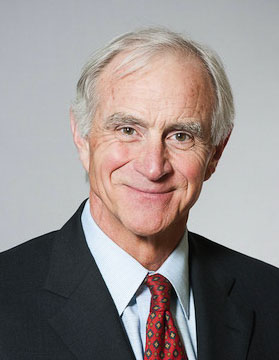
Dr. Roger Stark of the Washington Policy Center discusses a report by the Washington State Hospital Association indicates virtually every hospital in the state is in financial trouble
Dr. Roger Stark
Washington Policy Center
A report released last week by the Washington State Hospital Association indicates that virtually every hospital in the state is in financial trouble. (here) A recent survey revealed that hospital revenues were up five percent from 2021 to 2022, yet expenses rose 11 percent over the same time period. This is unsustainable. Several, if not many, hospitals are at risk of closing if these losses continue for another year. This includes both rural and urban facilities.

Executives give a number of reasons for the financial problem. Heading the list is poor Medicaid reimbursement at only 42 percent of hospital costs. Added to these low payments are high labor costs with temporary employees, inflation, and an inability to transfer patients out of the hospital in a timely fashion. (here)
Some hospitals are already cutting services, especially in pediatric, maternal, and mental health care. For hospitals with bed shortages, one solution is cutting back on elective operations and procedures. Unfortunately, this leads to more financial problems.
Not stated in the report, but a chronic financial problem for hospitals, is low Medicare reimbursement. Federal government officials essentially dictate what Medicare will pay for any given service based on the patient’s diagnosis. The program then pays 80 percent of that amount, regardless of the hospital’s cost for that service. Most hospitals shift cost to private insurance patients to cover the losses incurred by Medicare and Medicaid patients.
For years, we have heard of the ongoing health care crisis caused by the high number of uninsured. Interestingly enough, hospital officials don’t cite the uninsured as a reason for their financial difficulties. In other words, just having health insurance isn’t a solution to the hospitals’ financial problems – especially if government officials dictate payments that don’t cover hospital costs.
Although the American Hospital Association does not support “Medicare For All,” (here) down through the years hospital organizations have advocated for an expansion of the existing Medicare and Medicaid programs and also supported the passage of Obamacare. The argument, of course, is that more people would have health insurance and theoretically access to medical care. If hospitals can’t cover their overhead now with government-program payments and keep their doors open, it really doesn’t matter whether people have “insurance” or not.
The government is directly responsible for the other issues contributing to the hospitals’ financial problems. Government officials control the number of medical and nursing schools that can be built and therefore are responsible for the number of doctors and nurses that are available in the workforce. Likewise, the government is responsible for the high inflation the U.S. is now experiencing.
At least in Washington state, Certificate of Need laws control the number of long-term care and skilled nursing facilities that can be built. Because of a lack of these beds, patients are housed in acute care hospitals driving up expenses and costs for these facilities. In addition, Washington state has guardianship laws that prohibit family members or close friends from assuming the responsibility of discharging patients to long-term care.
We are seeing more hospital consolidation nationally and in Washington state. Theoretically, consolidation was designed to lead to more efficiency and cost savings. However, research now shows that costs actually go up and patient choices become limited when hospitals consolidate. (here) Ironically, the government is extremely proactive with anti-trust regulations when companies want to consolidate in other industries outside of health care.
Washington state hospitals see the short-term solution as more taxpayer money – the state currently has an $8 million fund that could be tapped. Unfortunately, this would be an insignificant amount of money and would simply lead to more demands for financial bailouts.
The real solution is to put patients in charge of their own health care, not the government or employers. Hospitals should compete with each other, just as companies do in other industries. Hospitals should offer price transparency to introduce competition based not only on quality but also price, so patients can become savvy medical care shoppers.
Likewise, government officials have the ability to allow patients more control of their health care:
- Change the tax code, so individuals can take the same deductions that employers now enjoy.
- Health insurance reform that eliminates benefit mandates, so it acts like true insurance, not health care maintenance.
- Expansion of the use of health savings accounts to pay for day-to-day health care needs.
- The use of high-risk pools to cover high-cost and high-utilization patients with pre-existing conditions.
- Meaningful reform to Medicare, Medicare, and the Affordable Care Act so these government programs can be sustained and act as true safety-net plans for the most vulnerable.
The government is directly responsible for the financial crisis that hospitals are now facing. More government intervention and taxpayer dollars are not solutions.
Dr. Roger Stark is a senior fellow and the director of the Center for Health Care at the Washington Policy Center.
Also read:
- Opinion: Revolution or revival?Nancy Churchill argues that Washington state is ground zero for a Marxist-style revolution but says a cultural revival is possible through personal responsibility and the America First movement.
- Letter: ‘It’s said sarcasm is the lowest form of wit’Amboy resident Thomas Schenk criticizes Olympia’s use of “emergency clauses” and other legislative tactics that limit public participation.
- Letter: ‘We’re going to give them some money and a plane ticket, and then we’re going to work with them’Camas resident Anna Miller supports a new structured self-deportation policy, calling it a balanced approach to immigration and economic needs.
- Opinion: What the 2025 legislature tells us about why Washington’s government keeps failingTodd Myers of the Washington Policy Center argues that Washington’s government fails because it resists humility, experimentation, and accountability in its policymaking.
- Letter: Vancouver needs broader leadership than just a teacher’s lensVancouver resident Peter Bracchi urges Mayor Anne McEnerny-Ogle not to seek another term, calling for more diverse and inclusive leadership rooted in broader experiences.










